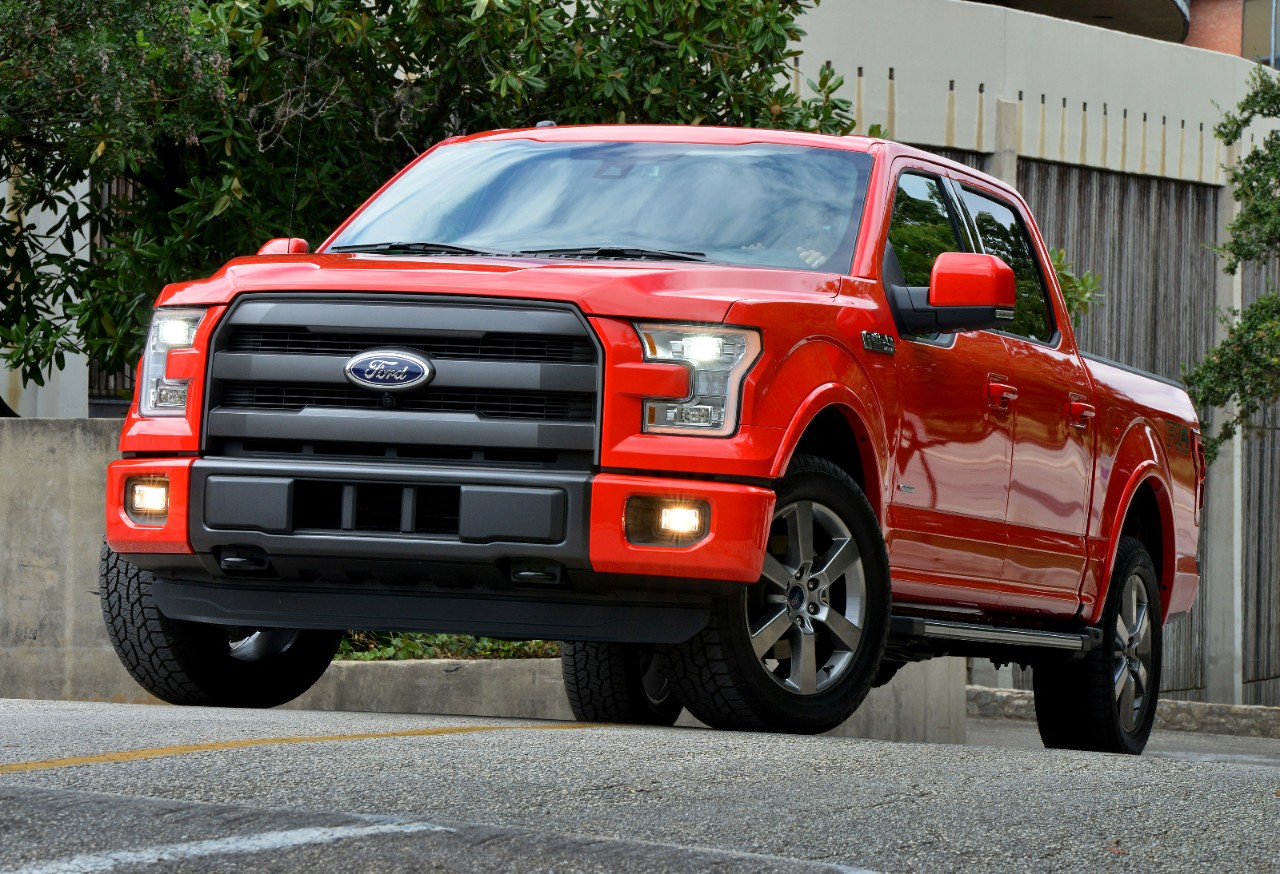Cars and Drivers
10,000 More Ford F-150 Sales in September Than Last Year
Published:
Last Updated:

Ford Motor Co. (NYSE: F) reported sales of 69,651 F-Series pickups in September, down about 2.3% from the 71,332 sold in August. The company does not break out sales of its all-new, aluminum-bodied F-150. In September of 2014, the company sold 59,863 F-Series trucks.
A year-over-year unit sales increase of nearly 10,000 in the month pulls the F-Series closer to total sales of the GMC Sierra and Chevy Silverado from General Motors Co. (NYSE: GM). GM sold 53,725 Silverados in September, up from 50,176 in September of last year, but down from 54,977 units sold in August. The GMC Sierra sold 19,754 units in September, up from 16,763 in 2014 and down from 21,241 units sold in August. Where GM sold a total of nearly 10,000 more pickups in July than did Ford and about 5,000 more in August, the September difference is now less than 4,000.
The Ram pickups from Fiat Chrysler Automobiles N.V. (NYSE: FCAU) posted sales of 36,598 in September, essentially flat with sales of 36,612 a year ago and down from 45,310 in August. Chrysler said this was the Ram brand’s best September sales total since 1996, but the brand includes ProMaster Vans, which added more than 3,200 unit sales to the September brand total.
ALSO READ: America’s Best and Worst Car Brands
It is unclear how the defeat of the proposed contract with the United Auto Workers among Chrysler workers will affect production and sales going forward. The company said in a statement released Thursday morning:
While significant progress has been made since the events of less than seven years ago, much more work remains to be done and challenges remain while new, significant ones surface. The cyclical nature of the automotive business demands that while we must recognize the need for rewarding employees during times of prosperity, we must also protect against the inevitable market downturn. This agreement accomplished both of these objectives.
The tentative agreement was designed to yield a strong and competitive FCA US, thus providing stability for our workforce and opportunity for future growth and investment in an increasingly complex global marketplace.
Chrysler’s UAW workers voted overwhelming (65%) against the contract, leading UAW president Dennis Williams to say:
As I said at the press conference: “What I love about our organization most of all is that no matter what we do, what action we take, the ultimate decision and the power of the union is our members and they make the final decision.”
That is the design of our constitution and who we are.
We will gather the issues together; notify FCA that further discussions are needed.
We don’t consider this a setback; we consider the membership vote a part of the process we respect.
We will be meeting with the UAW-FCA National bargaining committee and council to discuss the issues.
ALSO READ: The Most Dangerous Cars in America
The union had selected Chrysler as its first target in the pattern bargaining structure with the Detroit Three. Typically an agreement with the selected company sets a pattern for union negotiations with the other two. If Chrysler and the UAW cannot reach an agreement, the union will begin negotiations with either Ford or GM.
The proposed contract had maintained the two-tier wage system that Chrysler and the union negotiated in 2007. Even though it brought the top pay levels in the two tiers closer together, union workers hired before 2007 would still have been paid more than workers hired after that date, even though both performed the same job. About 45% of Chrysler’s employees are paid at the lower-tier rate.
Retirement can be daunting, but it doesn’t need to be.
Imagine having an expert in your corner to help you with your financial goals. Someone to help you determine if you’re ahead, behind, or right on track. With SmartAsset, that’s not just a dream—it’s reality. This free tool connects you with pre-screened financial advisors who work in your best interests. It’s quick, it’s easy, so take the leap today and start planning smarter!
Don’t waste another minute; get started right here and help your retirement dreams become a retirement reality.
Thank you for reading! Have some feedback for us?
Contact the 24/7 Wall St. editorial team.